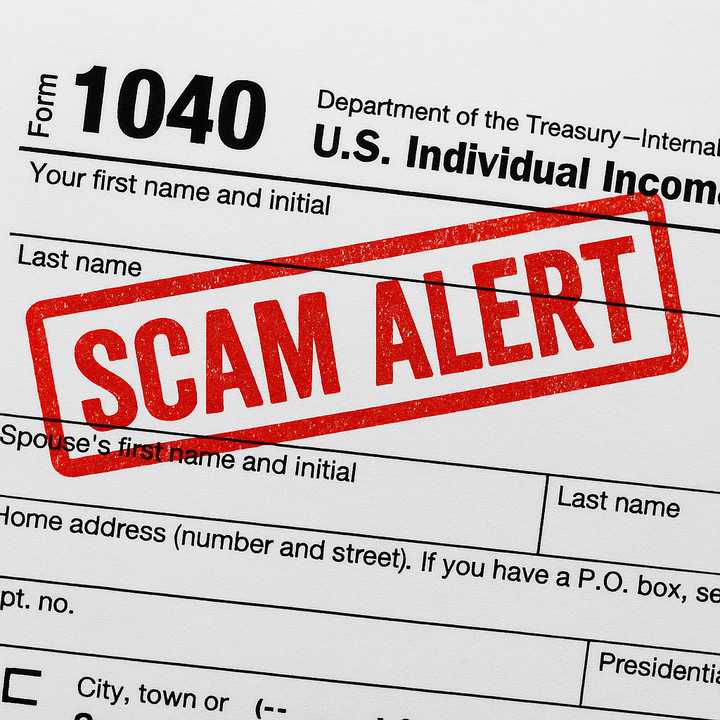With the Tuesday, April 15, tax filing deadline fast approaching, the IRS has issued a fresh alert highlighting its annual “Dirty Dozen” list—12 of the most common and dangerous scams that tend to spike during filing season.
“Scammers are relentless, and they use the guise of tax season to try tricking taxpayers into falling into a variety of traps," said Terry Lemons, IRS communications senior adviser. "These red flags can lead to everything from identity theft to being misled into claiming tax credits for which they’re not entitled.
“For more than two decades, the IRS has highlighted the Dirty Dozen through far-reaching communications and education campaigns as part of a wider effort by the agency to protect taxpayers from being scammed.”
From phishing emails and fake texts to bogus refund offers and misleading social media claims, scammers are getting more aggressive and creative each year, officials say.
Email and text scams top the list. Known as “phishing” and “smishing,” these tactics involve fraudulent messages that appear to come from the IRS or other legitimate entities.
They often threaten penalties or dangle the promise of unexpected refunds, trying to trick victims into clicking harmful links or sharing sensitive information.
The IRS also flagged bad advice circulating on social media — particularly on TikTok —that encourages taxpayers to misuse certain forms or claim credits they don’t qualify for.
One example involves misleading people into filing for the Fuel Tax Credit, which is only available for off-highway business and farming use.
Fake charities remain a persistent threat, especially in the wake of disasters, as scammers exploit goodwill to steal money and personal details.
Other schemes target self-employed individuals with made-up credits or aim to manipulate Form W-2 and 1099 filings using inflated or falsified withholding data.
Tax professionals aren’t immune either.
Sophisticated spear-phishing campaigns are targeting preparers directly by posing as new clients, attempting to install malware and gain access to confidential client data.
One of the most common schemes involves so-called “ghost” tax preparers—fraudsters who refuse to sign returns or provide required IRS credentials. Taxpayers are urged to avoid anyone unwilling to sign a return or who charges based on the size of a refund.
To help combat these scams, the IRS has teamed up with the tax community to form the Coalition Against Scam and Scheme Threats (CASST) and encourages people to follow only trusted sources when it comes to tax advice.
The IRS reminds taxpayers: If it sounds too good to be true, it probably is.
Check back to Daily Voice for updates.
Click here to follow Daily Voice Killingly-Danielson and receive free news updates.
